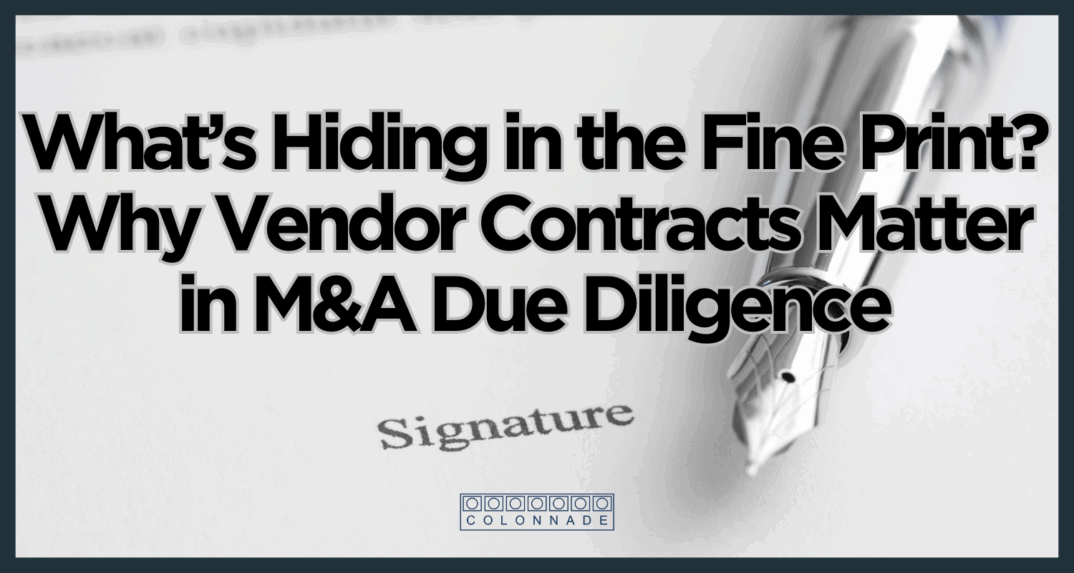What’s Hiding in the Fine Print? Why Vendor Contracts Matter in M&A Due Diligence

In any M&A transaction, the financials tell only part of the story. The rest? It’s buried in the paperwork—specifically, the vendor contracts.
When evaluating a company for acquisition, one of the most overlooked (yet critical) steps in diligence is reviewing the company’s vendor agreements. These contracts often contain clauses that can materially impact deal structure, cost assumptions, and post-close operations.
Here’s what to look for—and why it matters:
- Non-Assignable or Non-Transferable Agreements
Many contracts restrict assignment in the event of a sale. If a vendor contract is non-transferable or requires prior consent, the buyer may need to renegotiate—or risk losing a key supplier or service provider. These clauses are especially common in software licenses, strategic partnerships, and specialized vendor relationships. - Long-Term Obligations and Buyout Clauses
Buyers must be aware of any long-term commitments that could carry over post-close. Are there minimum volume requirements? Auto-renewal terms? Buyout provisions? These obligations can be costly and may not align with the buyer’s go-forward strategy. - Price Escalators
Contracts often include annual price increases tied to inflation or cost indices. These escalators may appear minor but can significantly impact operating costs over time—especially if the seller has locked in rates that will soon reset. - Notice Provisions
Missing a required notice—whether for renewal, termination, or assignment—can trigger penalties or force an automatic extension of unfavorable terms. These provisions are particularly sensitive in real estate leases and mission-critical services. - Real Estate Leases and Landlord Consent
Commercial leases deserve special attention. Most contain a Change of Control, Assignment, or Transfer clause that requires the tenant to notify—and sometimes seek approval from—the landlord prior to a transaction closing. This gives the landlord leverage and, in some cases, the ability to reject or renegotiate terms. Failing to handle this properly can delay or derail a deal.
Types of Contracts Commonly Held by Businesses:
- Commercial real estate leases
- Key supplier and vendor agreements
- Software licenses and IT services contracts
- Marketing and advertising service contracts
- Utilities and telecom agreements
- Equipment leases and maintenance contracts
- Logistics, shipping, and fulfillment contracts
- Franchise, distribution, or reseller agreements
- Employment agreements (especially executive or sales comp plans)
- Professional services (legal, accounting, consultants)
- Insurance policies and brokerage agreements
The Bottom Line:
Every contract has implications. Some are manageable; others can be deal breakers. At Colonnade Advisors, we guide buyers and sellers through comprehensive due diligence to uncover—and navigate—these hidden risks, ensuring there are no surprises post-close.
📩 Thinking about selling your company in 2025? Let’s talk about what’s in your contracts—before the buyer does.


